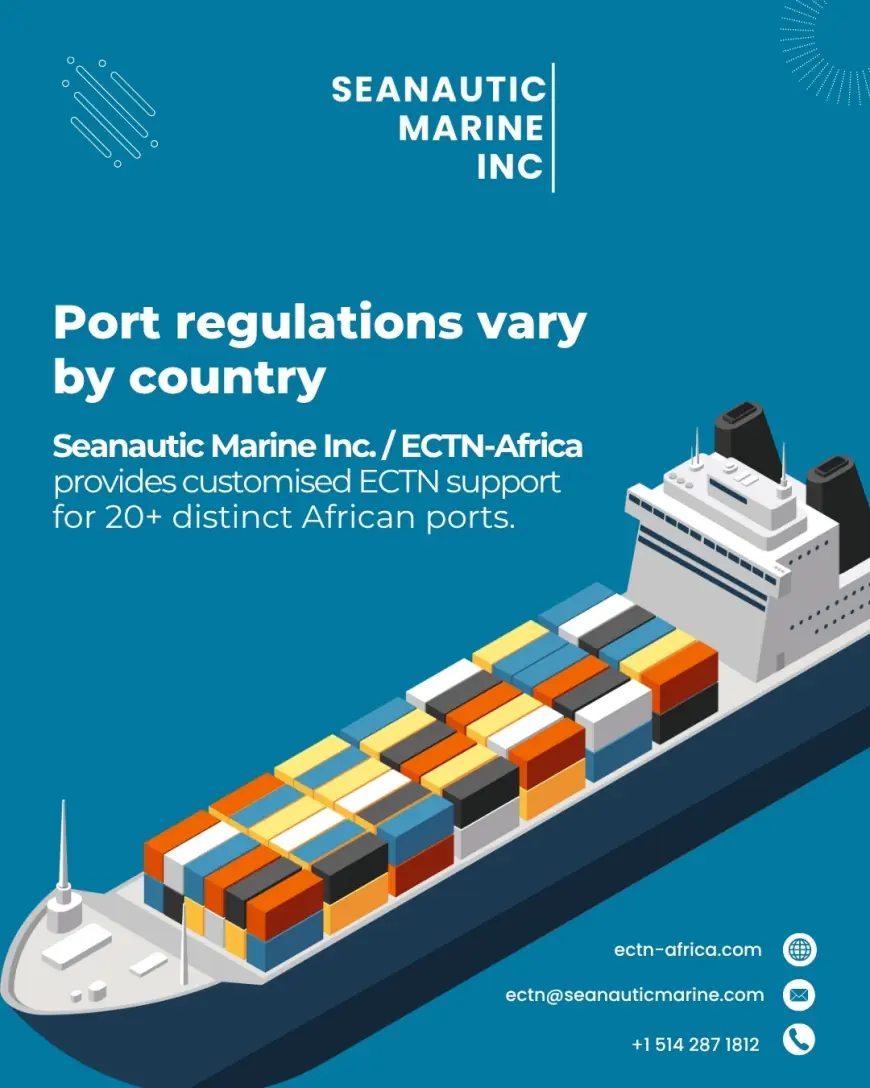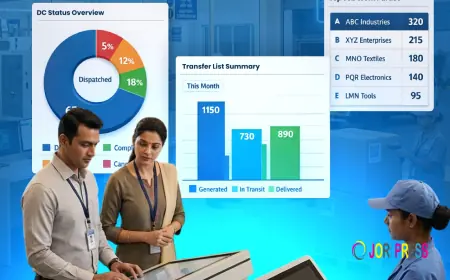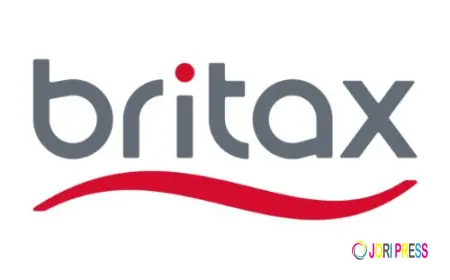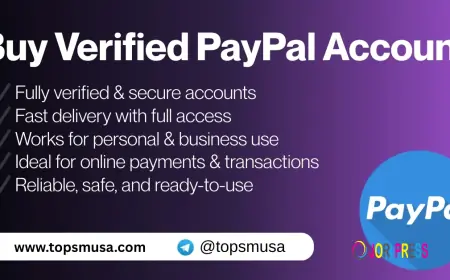Real Case Studies: How Missing an ECTN Certificate Led to Costly Shipping Penalties

When it comes to international shipping, missing an ECTN certificate is not just a paperwork issue—it can directly lead to heavy financial penalties, cargo delays, and even shipment rejections. Real-world cases from businesses that overlooked this requirement show just how costly such a mistake can be.
Introduction: Why This Topic Matters
For exporters and importers dealing with African ports, the ECTN certificate (Electronic Cargo Tracking Note) is more than a formality—it’s a mandatory document that ensures compliance with customs authorities. Without it, shipments are often subjected to fines, delays, or even seizure.
While many logistics managers are aware of ECTN requirements, some underestimate its importance until they face the consequences firsthand. This article dives into real case studies of companies that failed to secure their ECTN on time, the penalties they encountered, and what lessons other businesses can learn from their experience.
Case Study 1: A European Exporter to Guinea Faces Cargo Delay
One notable case involves a mid-sized European manufacturer shipping machinery to Guinea. The company assumed that their freight forwarder had handled all the necessary paperwork. Unfortunately, the ECTN certificate was never issued before the cargo left port.
The Consequences:
- Upon arrival in Guinea, customs authorities flagged the shipment as non-compliant.
- The cargo was held for 10 days while the exporter scrambled to apply for the certificate retroactively.
- The company was forced to pay a $4,000 fine in addition to demurrage charges.
Had the company been aware of the ECTN Guinea process, the cost would have been minimal compared to the unexpected penalties. This case highlights the importance of double-checking documentation responsibilities with freight forwarders.
Case Study 2: Importer in South Sudan Pays Extra Fees
In another situation, a construction materials supplier shipping goods to South Sudan faced severe financial setbacks. The importer overlooked the requirement for an ECTN South Sudan certificate, assuming the shipment would be cleared as long as a bill of lading was presented.
The Consequences:
- Customs imposed a penalty fee equal to 15% of the cargo’s total value.
- Clearance was delayed by two weeks, causing a major construction project to stall.
- The importer’s relationship with its client was damaged due to the delay.
This case shows how a missing ECTN can hurt not only the shipment itself but also a company’s professional reputation and long-term contracts.
Case Study 3: Burundi Shipment Held at Port
A food distributor exporting goods to Burundi underestimated the role of the ECTN certificate. They assumed that since the goods were humanitarian supplies, exceptions would be made.
The Consequences:
- Authorities in Bujumbura refused to release the cargo without an ECTN Burundi certificate.
- The exporter had to hire a local agent to process the document post-arrival, at double the normal cost.
- The delay caused spoilage of part of the food supplies, leading to losses and reputational damage.
This case illustrates that humanitarian or time-sensitive shipments are not exempt from documentation rules.
Case Study 4: Djibouti Logistics Firm Hit with Repeat Fines
A logistics firm operating regular trade routes through Djibouti overlooked ECTN requirements multiple times. Despite warnings from local authorities, the company continued shipping without securing the ECTN Djibouti certificate.
The Consequences:
- Authorities imposed repeat fines totaling over $20,000 in a single year.
- The firm faced repeated customer complaints due to delays.
- Eventually, one client terminated their contract and shifted to a competitor with better compliance practices.
The lesson here is that ignoring documentation rules repeatedly damages not just finances but long-term business credibility.
Why Are ECTN Certificates So Important?
Across African nations, ECTN certificates play a crucial role in:
- Tracking cargo for security and customs compliance.
- Preventing smuggling and fraud by verifying shipment details.
- Ensuring fair taxation, as authorities match cargo values with official records.
Without an ECTN, authorities have no official record of cargo details, which is why they impose strict penalties on non-compliance.
If you’re new to the process, resources like this guide on ECTN certificate provide clear steps on how to apply correctly.
Common Mistakes That Lead to Missing an ECTN
From these real cases, we can see recurring mistakes businesses make:
- Assuming freight forwarders handle it – Many companies rely on forwarders but don’t confirm.
- Not knowing country-specific rules – Each African nation has its own ECTN requirements.
- Delaying applications – Waiting until cargo is shipped often results in costly retroactive processing.
- Misunderstanding exemptions – Even aid shipments or low-value cargo require documentation.
Expert Insights: How to Avoid Penalties
Industry experts suggest three practical steps to avoid such costly mistakes:
- Always confirm responsibilities – Clearly define whether your team or your forwarder applies for the certificate.
- Check destination rules in advance – Each country (Guinea, South Sudan, Burundi, Djibouti, etc.) has slightly different ECTN processes.
- Apply early – Begin the ECTN application as soon as you finalize your bill of lading.
According to freight compliance surveys, over 70% of penalties in African ports are due to missing or incorrect documentation, with ECTN being one of the top culprits.
Practical Advice for Businesses
If your company trades with African countries, consider these best practices:
- Create a compliance checklist before every shipment.
- Assign a documentation officer who specializes in customs requirements.
- Work with certified agents familiar with local port regulations.
- Train staff on ECTN processes to avoid dependency on external parties.
By integrating these steps, you reduce the risk of unnecessary costs and strengthen your reliability as a global trader.
Conclusion: A Small Step That Saves Big
The real-world cases of exporters and importers missing their ECTN certificates reveal one clear truth: overlooking this document can cost thousands in penalties, weeks of delays, and even client relationships.
Securing your ECTN is not complicated, but ignoring it is expensive. Whether you are shipping to Guinea, South Sudan, Burundi, Djibouti, or beyond, the lesson is simple: always prioritize documentation before your cargo leaves port.
By learning from the mistakes of others, your business can avoid these costly setbacks and ensure smooth, penalty-free trade operations.
FAQs
- What happens if I ship without an ECTN certificate?
Your cargo may be held at port, fined heavily, or delayed until retroactive documentation is secured. - Is the ECTN requirement the same across all African countries?
No. Each country, such as Guinea, South Sudan, Burundi, and Djibouti, has its own rules. Always check before shipping. - Can my freight forwarder handle the ECTN application?
Yes, but you must confirm this responsibility. Many penalties occur because companies assume forwarders manage it automatically. - Is it more expensive to apply for an ECTN after shipping?
Yes. Retroactive applications often cost double and include additional fines. - Where can I learn how to apply for an ECTN certificate?
You can follow a reliable step-by-step guide on how to apply for an ECTN certificate for smooth compliance.
Source : https://seanauticmarine.blogspot.com/2025/08/real-case-studies-how-missing-ectn.html
What's Your Reaction?
 Like
0
Like
0
 Dislike
0
Dislike
0
 Love
0
Love
0
 Funny
0
Funny
0
 Angry
0
Angry
0
 Sad
0
Sad
0
 Wow
0
Wow
0


















































